Not getting enough sleep can take a big toll on your body and mind. Insomnia makes it hard to fall asleep, stay asleep, or both. This lack of rest affects many parts of your health.

What to do before bed to sleep better:
Watch the video NOW!
When you have insomnia, your body may feel tired but wired, your mind can race, and you might feel cranky or sad. Your energy drops, making it tough to focus at work or school. Over time, not sleeping well can lead to weight gain and raise your chance of getting sick.
Insomnia doesn’t just impact nighttime. It can make daytime hard too. You might have trouble remembering things or making choices. Your sex drive may decrease. These effects can strain relationships and make everyday tasks feel overwhelming.
Key Takeaways
- Insomnia disrupts sleep patterns and affects overall health
- Lack of sleep impacts mood, energy, focus, and physical well-being
- Treating insomnia can improve daily functioning and quality of life
Understanding Insomnia

Insomnia is a complex sleep disorder that affects millions of people worldwide. It can take different forms and stem from various causes, impacting sleep quality and overall health.
What Is Insomnia?
Insomnia is a condition that makes it hard to fall asleep, stay asleep, or both. People with insomnia often feel tired when they wake up. This sleep problem can affect mood, energy levels, and daily functioning.
Common signs of insomnia include:
- Trouble falling asleep at night
- Waking up during the night
- Waking up too early
- Not feeling well-rested after sleep
Insomnia can happen to anyone, but it’s more common in older adults, women, and people with high stress levels. It can last for days, weeks, or even months.
Acute vs. Chronic Insomnia
Insomnia is classified based on how long it lasts. Acute insomnia is short-term and often triggered by stress or changes in environment. It typically lasts for a few days to a few weeks.
Chronic insomnia, on the other hand, is long-term. It occurs at least three nights a week for three months or more. Chronic insomnia can have serious effects on health and quality of life.
Key differences:
| Acute Insomnia | Chronic Insomnia |
|---|---|
| Short-term | Long-term |
| Days to weeks | Months or years |
| Often resolves on its own | May require treatment |
Primary vs. Secondary Insomnia
Insomnia is also categorized based on its underlying cause. Primary insomnia occurs on its own, not due to any other health condition or problem. It’s often linked to factors like stress or changes in sleep environment.
Secondary insomnia, also called comorbid insomnia, is caused by another condition. These may include:
- Mental health disorders like depression or anxiety
- Medical conditions such as chronic pain or sleep apnea
- Medications
- Substance use
Treatment for secondary insomnia often involves addressing the underlying condition along with the sleep problems. This approach can lead to better overall health outcomes.
Causes of Insomnia
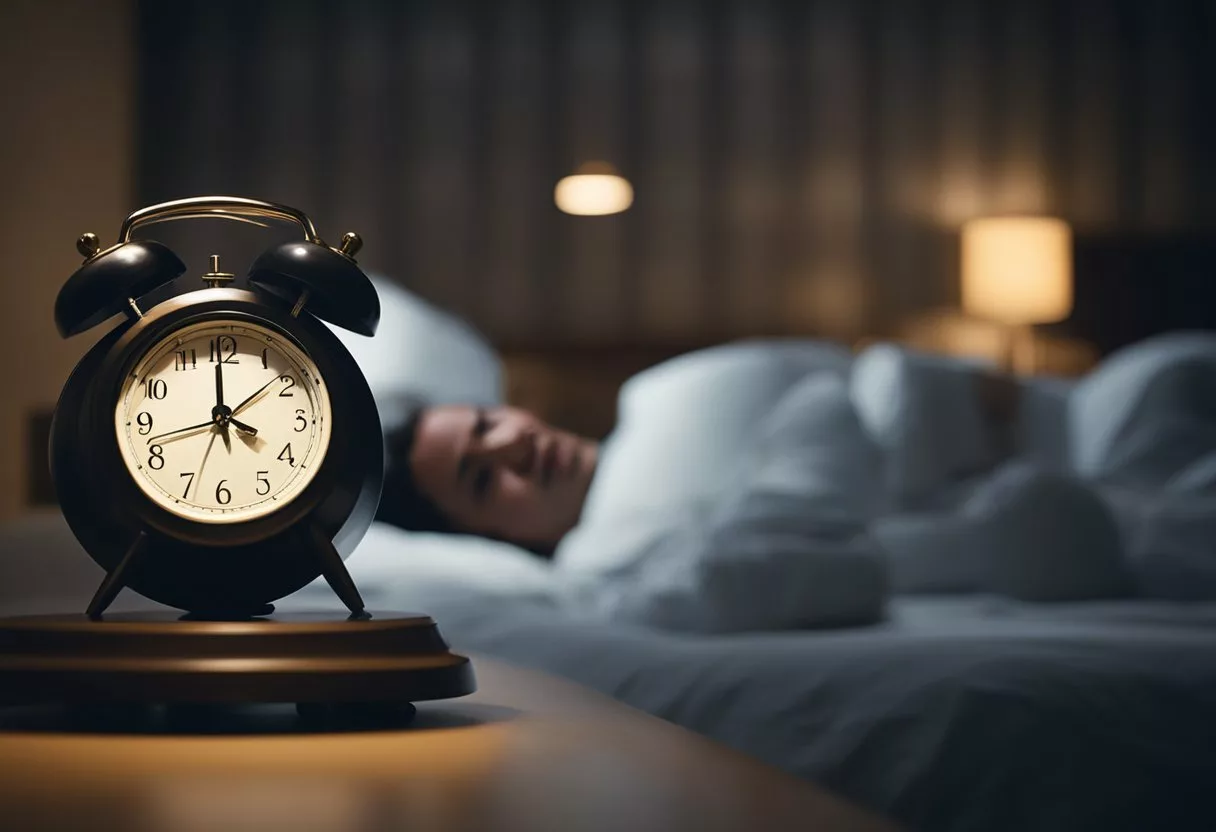
Insomnia has many different causes. These range from lifestyle choices to health issues and even medications. Understanding these causes can help people find ways to improve their sleep.
Lifestyle and Environment Factors
Stress is a major cause of insomnia. Work pressures, relationship problems, and financial worries can keep the mind active at night. An irregular sleep schedule can also lead to sleep problems. This includes shift work or frequent travel across time zones.
Noise, light, and temperature in the bedroom matter too. A room that’s too bright, loud, or hot can make it hard to sleep. Screen time before bed is another issue. The blue light from phones and computers can disrupt the body’s natural sleep-wake cycle.
Diet plays a role as well. Eating heavy meals late at night can cause discomfort. Caffeine, nicotine, and alcohol can all interfere with sleep, especially if used close to bedtime.
Physical Health Conditions
Many health issues can cause insomnia. Chronic pain from conditions like arthritis or fibromyalgia can make it hard to fall asleep or stay asleep. Breathing problems like sleep apnea or asthma can also disrupt sleep.
Hormonal changes can affect sleep too. Women may experience insomnia during menstruation, pregnancy, or menopause. Thyroid problems can also lead to sleep issues.
Other conditions that can cause insomnia include:
- Heart disease
- Gastroesophageal reflux disease (GERD)
- Parkinson’s disease
- Alzheimer’s disease
Mental Health and Emotional Factors
Mental health plays a big role in sleep quality. Depression and anxiety are common causes of insomnia. People with these conditions may have racing thoughts that keep them awake.
Post-traumatic stress disorder (PTSD) can also lead to sleep problems. Nightmares and flashbacks can make it hard to fall asleep or cause frequent waking.
Other mental health conditions that can affect sleep include:
- Bipolar disorder
- Schizophrenia
- Attention deficit hyperactivity disorder (ADHD)
Stress from major life changes can also cause temporary insomnia. This might include losing a job, the death of a loved one, or moving to a new home.
Medications and Substances
Some medications can interfere with sleep as a side effect. These include:
- Antidepressants
- Blood pressure medications
- Allergy medications
- Stimulants for ADHD
Over-the-counter medicines can also cause sleep problems. Some pain relievers contain caffeine, which can keep people awake.
Alcohol might help people fall asleep faster, but it can lead to poorer sleep quality overall. It can cause more frequent waking during the night.
Illegal drugs can also disrupt sleep patterns. Stimulants like cocaine or methamphetamine can make it very difficult to sleep. Even drugs like marijuana, which some people use to help them sleep, can lead to sleep problems with long-term use.
Effects on the Body

Insomnia takes a toll on both physical and mental health. It impacts cognitive abilities, increases health risks, and affects emotional wellbeing.
Impaired Cognitive Functions
Lack of sleep can lead to poor focus and memory problems. People with insomnia often struggle to concentrate at work or school. They may forget important tasks or have trouble learning new information.
Reaction times slow down, increasing the risk of accidents. Insomnia sufferers might find it hard to make decisions or solve problems. Their judgment can become impaired, leading to poor choices.
Brain fog is common, making it difficult to think clearly or creatively. This can hurt job performance and academic achievement.
Physical Health Complications
Insomnia raises the risk of several health issues. Chronic sleep loss weakens the immune system, making people more prone to infections.
It can lead to weight gain and obesity. Lack of sleep disrupts hormones that control hunger and fullness. This often results in overeating and cravings for high-calorie foods.
Heart problems are more likely in those with insomnia. It can cause high blood pressure and increase the risk of heart disease. Diabetes risk also goes up, as sleep affects blood sugar control.
Other physical effects include:
- Headaches
- Digestive issues
- Weakened muscles
- Chronic pain
Mental and Emotional Impact
Insomnia takes a heavy toll on mental health. It often leads to mood swings and irritability. People may feel on edge or easily frustrated.
Anxiety and depression are common in those with sleep problems. Lack of rest can worsen existing mental health conditions or trigger new ones. It becomes a vicious cycle, as anxiety about sleep can make insomnia worse.
Emotional regulation becomes difficult. People might overreact to minor stresses or have trouble controlling their emotions. This can strain relationships at home and work.
Long-term insomnia may increase the risk of developing more serious mental health disorders.
Recognizing the Symptoms
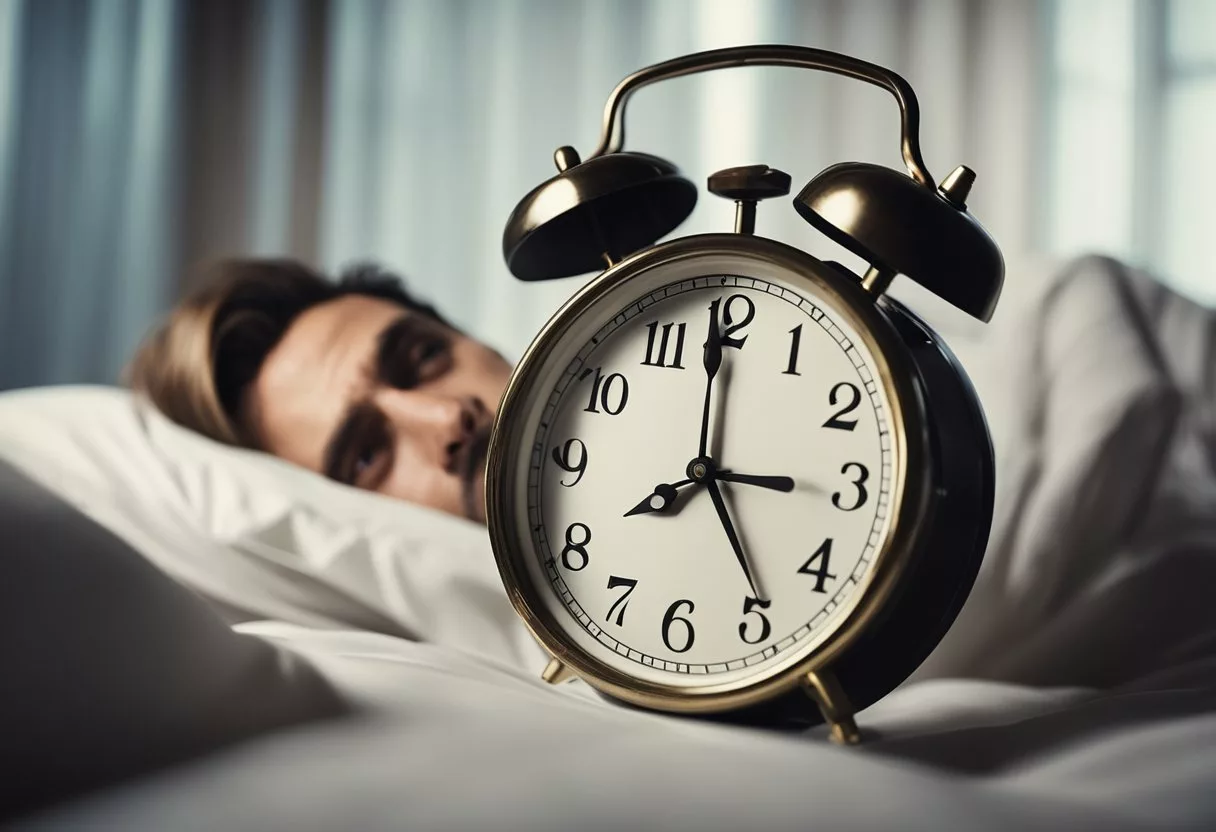
Insomnia can show itself in many ways. It affects both nighttime sleep and daytime function. Knowing the signs helps spot this sleep problem early.
Common Signs of Insomnia
Trouble falling asleep is a key sign of insomnia. People may toss and turn in bed for a long time before drifting off.
Waking up often during the night is another common issue. Some find it hard to get back to sleep after waking up.
Waking up too early and not being able to fall asleep again can also point to insomnia. This can lead to less total sleep time.
Daytime effects often follow poor sleep. These may include:
- Feeling tired or sleepy during the day
- Mood changes like being cranky or on edge
- Problems with focus or memory
Assessing Sleep Quality and Patterns
Keeping a sleep diary can help track sleep habits. Note when you go to bed, how long it takes to fall asleep, and when you wake up.
Pay attention to how you feel upon waking. Do you feel rested or still tired? This gives clues about sleep quality.
Watch for changes in your usual sleep pattern. Going to bed or waking up at very different times each day can be a sign of insomnia.
Daytime naps might seem helpful, but they can mess up nighttime sleep. Keep track of any naps and how they affect your sleep at night.
Impact on Daily Life
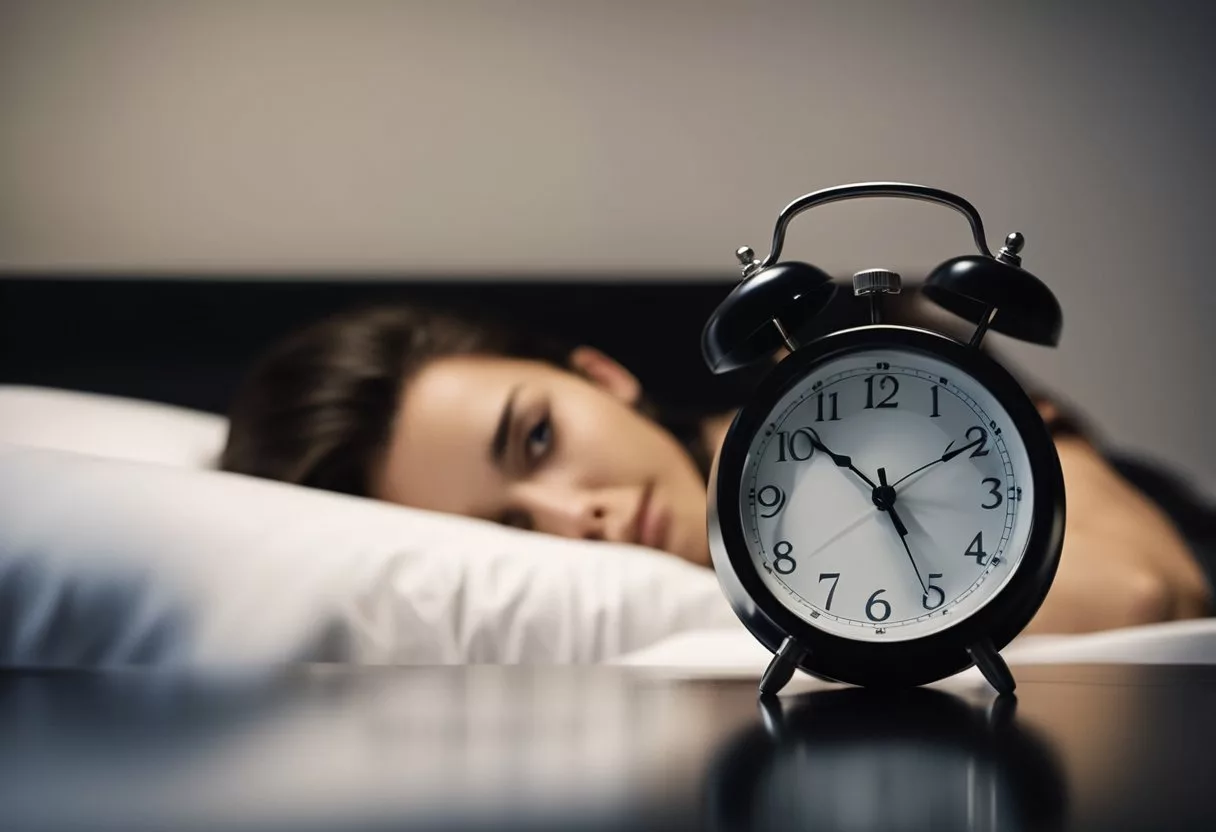
Insomnia affects many areas of a person’s life. It can hurt job and school performance, strain relationships, and increase accident risks.
Work and School Performance
Lack of sleep makes it hard to focus and think clearly. People with insomnia often struggle at work or school. They may:
• Have trouble remembering things • Make more mistakes • Take longer to finish tasks • React slower
These issues can lead to poor grades or job reviews. Some people miss work or class due to extreme tiredness. Over time, insomnia may hurt career progress or academic success.
Social and Personal Relationships
Sleep problems can strain friendships and family ties. A tired person may:
• Feel irritable and short-tempered • Cancel plans due to fatigue • Lack energy for social events
This can lead to feelings of isolation. Romantic relationships may suffer too. A partner’s disrupted sleep or daytime crankiness can cause tension.
Risk of Accidents
Insomnia raises accident risks in daily life. Drowsy driving is very dangerous. Tired drivers have slower reaction times. They may fall asleep at the wheel.
At home, lack of focus can lead to injuries. A person might:
• Trip and fall • Cut themselves while cooking • Forget to turn off the stove
At work, tired employees face higher injury risks. This is especially true in jobs involving machinery or driving.
Diagnosis and Assessment
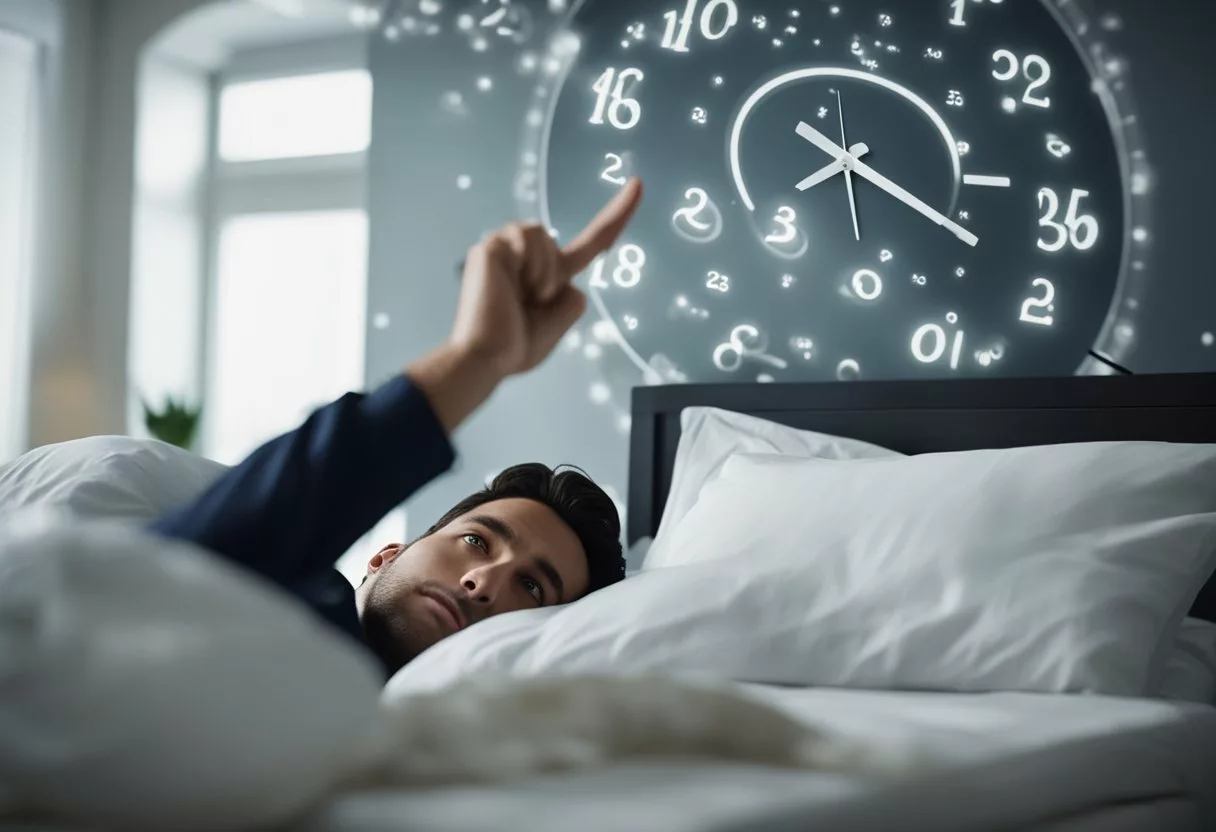
Doctors use several methods to diagnose insomnia and find its root cause. These approaches help create a clear picture of a person’s sleep patterns and overall health.
Medical History Evaluation
Doctors start by asking about sleep habits and health issues. They look for medical conditions that might cause insomnia. These can include thyroid problems, depression, or anxiety.
The doctor may also check for other sleep disorders like sleep apnea or restless legs syndrome. They’ll ask about medicines, caffeine use, and alcohol intake. All these factors can affect sleep.
A physical exam might be done to check for health problems linked to poor sleep.
Sleep Diary and Questionnaires
Keeping a sleep diary helps track sleep patterns. Patients write down:
- Bedtime and wake time
- How long it takes to fall asleep
- Number of night-time wake-ups
- How they feel during the day
Doctors may use special forms to assess sleep quality and daytime tiredness. These tools help measure how insomnia affects daily life.
Specialized Sleep Studies
For some cases, doctors might suggest a sleep study. This test is done in a sleep lab. It records brain waves, heart rate, and breathing during sleep.
A sleep study can spot issues like sleep apnea. It shows how much time is spent in each sleep stage. This data helps create the best treatment plan.
Home sleep tests are sometimes used. They’re less detailed but more comfortable for some people.
Treatment Options
Insomnia can be managed through different approaches. These include changing behaviors, taking medications, and trying alternative methods. Each option aims to help people sleep better and feel more rested.
Behavioral and Lifestyle Changes
Changing sleep habits can often improve insomnia. A key step is keeping a regular sleep schedule. This means going to bed and waking up at the same time every day.
Creating a relaxing bedtime routine helps signal to the body that it’s time to sleep. This might include taking a warm bath or reading a book.
Physical activity during the day can promote better sleep at night. It’s best to exercise earlier in the day, not close to bedtime.
Limiting caffeine, alcohol, and large meals before bed can also help. These can interfere with falling asleep or staying asleep.
Making the bedroom dark, quiet, and cool creates an ideal sleep environment. Using earplugs or a white noise machine can block out disruptive sounds.
Medications and Supplements
When lifestyle changes aren’t enough, medications may be prescribed. Doctors often recommend using these for short periods only.
Common sleep medications include:
- Benzodiazepines
- Non-benzodiazepine hypnotics
- Melatonin receptor agonists
Over-the-counter sleep aids are available too. These often contain antihistamines that can cause drowsiness.
Melatonin supplements are popular. Melatonin is a hormone that helps regulate sleep cycles. It may be helpful for some types of insomnia.
It’s important to talk to a doctor before starting any new medication or supplement. They can have side effects and may interact with other drugs.
Alternative Therapies
Some people find relief from insomnia through alternative treatments. These can be used alone or with other methods.
Cognitive behavioral therapy for insomnia (CBT-I) is very effective. It helps change thoughts and behaviors that interfere with sleep.
Relaxation techniques can calm the mind and body. These include:
- Deep breathing exercises
- Progressive muscle relaxation
- Guided imagery
Acupuncture may help some people sleep better. This involves inserting thin needles into specific points on the body.
Herbal remedies like valerian root or chamomile tea are sometimes used. Their effectiveness varies, and they can have side effects.
Light therapy uses special lamps to help reset the body’s internal clock. This can be helpful for people with circadian rhythm disorders.
Prevention and Management
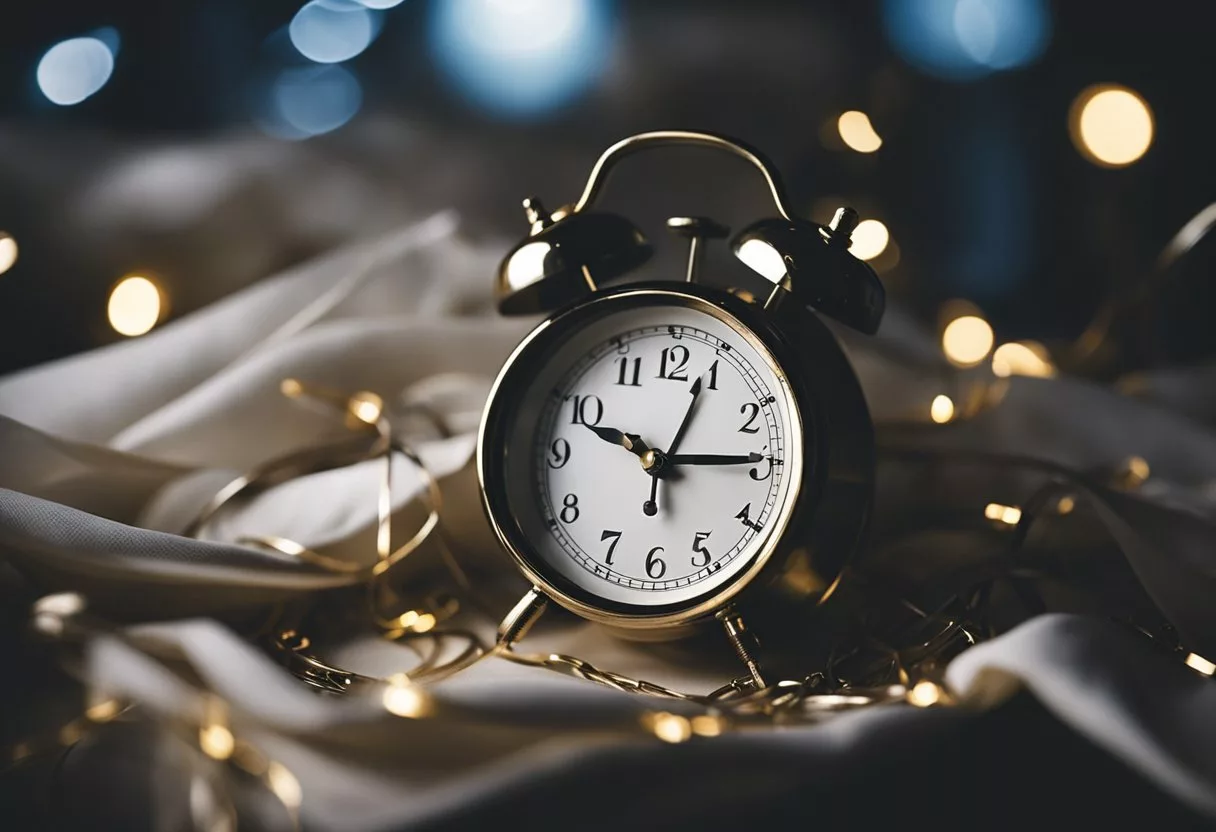
Preventing and managing insomnia involves creating good habits and a sleep-friendly environment. These steps can help improve sleep quality and duration.
Developing Healthy Sleep Habits
Good sleep habits are key to beating insomnia. Set a regular sleep schedule by going to bed and waking up at the same time each day. This helps regulate your body’s internal clock. Avoid naps, especially in the afternoon, as they can disrupt nighttime sleep.
Exercise regularly, but not too close to bedtime. Physical activity can improve sleep quality, but exercising late in the day may make it harder to fall asleep. Aim to finish workouts at least 3 hours before bed.
Limit caffeine, alcohol, and large meals before bedtime. These can interfere with sleep. Instead, try a light snack if hungry. Avoid smoking, as nicotine is a stimulant that can keep you awake.
Stress Reduction and Relaxation Techniques
Stress often leads to sleepless nights. To combat this, try relaxation methods before bed. Deep breathing exercises can calm the mind and body. Simply breathe in slowly for 4 counts, hold for 4, then exhale for 4.
Progressive muscle relaxation is another helpful technique. Tense and then relax each muscle group in your body, starting from your toes and moving up to your head.
Meditation can also reduce stress and improve sleep. Even 5-10 minutes of mindfulness practice before bed can make a difference.
Some people find melatonin supplements helpful for short-term use. Talk to a doctor before trying any sleep aids.
Creating an Optimal Sleep Environment
Your bedroom should be a sleep sanctuary. Keep it dark, quiet, and cool. Use blackout curtains or an eye mask to block light. White noise machines or earplugs can mask disruptive sounds.
Set the thermostat between 60-67°F (15-19°C) for ideal sleeping conditions. Choose a comfortable mattress and pillows that support your body.
Limit electronic device use before bed. The blue light from screens can interfere with melatonin production. If you must use devices, enable night mode or wear blue light blocking glasses.
Remove clocks from your line of sight. Watching time pass can increase anxiety about sleep. Keep your bedroom free of work materials to create a relaxing atmosphere.
Special Considerations
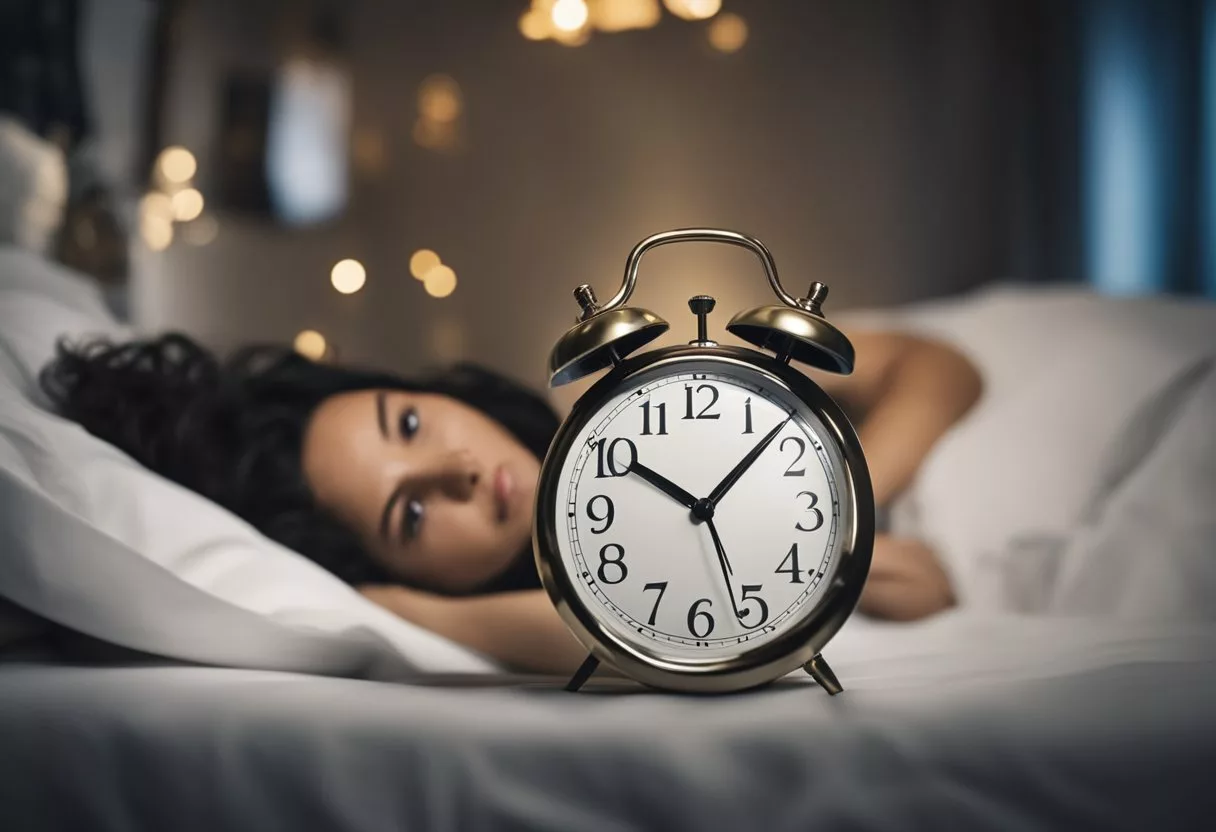
Insomnia affects people differently at various life stages. Age, hormonal changes, and developmental factors can all influence sleep patterns and insomnia symptoms.
Insomnia in Children and Adolescents
Children and teens with insomnia may show different signs than adults. They might resist bedtime, have trouble falling asleep, or wake up often during the night. This can lead to:
- Daytime sleepiness
- Irritability
- Difficulty concentrating in school
Sleep habits are crucial for kids. A consistent bedtime routine can help. Limiting screen time before bed is also important.
For adolescents, biological changes can shift sleep patterns. This may conflict with early school start times. Teens might struggle with falling asleep early enough to get adequate rest.
Insomnia During Pregnancy and Menopause
Hormonal fluctuations can disrupt sleep patterns. During pregnancy, women often experience:
- Difficulty finding comfortable sleeping positions
- Increased need to urinate at night
- Anxiety about the upcoming birth
These factors can contribute to insomnia.
Menopause brings its own sleep challenges. Hot flashes and night sweats can wake women frequently. Mood changes may also affect sleep quality.
For both pregnancy and menopause, relaxation techniques can help. Adjusting sleeping environments for comfort is key.
Insomnia in Older Adults
As people age, sleep patterns naturally change. Older adults may:
- Wake up earlier
- Have lighter, more fragmented sleep
- Experience more nighttime awakenings
Medical conditions common in older adults can worsen insomnia. These include arthritis pain and frequent urination.
Medications for various health issues might also interfere with sleep. It’s important for older adults to discuss sleep concerns with their doctors.
Regular exercise and consistent sleep schedules can improve sleep quality in this age group.
Frequently Asked Questions

Insomnia can have wide-ranging effects on both physical and mental health. It impacts organ function, cognitive abilities, and emotional well-being. Understanding these effects helps identify and address sleep issues.
What are the physical effects of chronic insomnia on the body?
Chronic insomnia can lead to weakened immune function. This makes people more susceptible to illnesses and infections.
It may also increase the risk of heart disease and high blood pressure. Lack of sleep can disrupt hormone levels, potentially leading to weight gain and metabolic issues.
What are the psychological impacts of prolonged sleep deprivation?
Sleep deprivation often causes irritability and mood swings. It can worsen symptoms of anxiety and depression.
Chronic insomnia may impair cognitive functions like memory, concentration, and decision-making. This can affect work performance and daily activities.
Can insomnia have long-term effects on organ function?
Yes, insomnia can affect multiple organ systems over time. It may increase the risk of cardiovascular problems and weaken the heart.
Chronic sleep loss can disrupt the endocrine system, affecting hormone production. This can lead to issues with metabolism, appetite regulation, and blood sugar control.
What are common causes of insomnia in adults?
Stress and anxiety are frequent triggers for insomnia. Work pressures, relationship issues, or financial worries can keep the mind active at night.
Medical conditions like chronic pain or sleep apnea may cause sleep disturbances. Certain medications can also interfere with normal sleep patterns.
How does insomnia affect daytime functioning and alertness?
Insomnia often leads to daytime fatigue and sleepiness. This can impair reaction times and increase the risk of accidents.
People with insomnia may struggle to focus on tasks or retain new information. This can affect productivity at work or school.
Are there specific symptoms that indicate the presence of severe insomnia?
Severe insomnia often involves difficulty falling asleep most nights of the week. Waking up frequently during the night and struggling to fall back asleep are common signs.
Feeling unrefreshed upon waking, even after a full night in bed, can indicate severe insomnia. Persistent daytime fatigue and mood disturbances are also key symptoms.